September 25, 2025
In today's complex insurance landscape, obtaining reliable guidance is crucial for making informed decisions. Navigating the numerous options and understanding policy intricacies can be daunting, but the right insurance guidance helps simplify this process. This article explores the pathways to acquiring dependable advice, the pitfalls to avoid, and strategies to optimize your insurance experience while safeguarding your financial future. With so many policies, riders, and coverage options available, consumers benefit from understanding the nuances of deductibles, exclusions, and premium structures, making professional guidance invaluable for long-term financial security.
Why Reliable Insurance Guidance Matters
Insurance serves as a cornerstone of financial security, protecting individuals and businesses from unforeseen financial burdens. Choosing the correct coverage requires knowledge, foresight, and a clear understanding of personal or business needs. Without reliable insurance guidance, consumers may inadvertently purchase inadequate policies or miss out on valuable coverage options, jeopardizing long-term financial stability. Reliable guidance ensures that policies are not only affordable but also aligned with specific risk profiles, such as health conditions, property risks, or business exposures. This tailored approach minimizes gaps in coverage while maximizing protection. Additionally, it helps clients identify emerging risks, adapt coverage over time, and make strategic decisions about bundling policies to save money without sacrificing essential benefits.
The Risks of Unreliable Information
Relying on incomplete or inaccurate sources for insurance guidance can have significant consequences. Misleading advice may leave individuals underinsured, resulting in financial vulnerability during critical events. The insurance market is vast, with over 927,600 licensed agencies and brokers operating in the US according to Agent Methods. Differentiating trustworthy sources from unreliable ones is therefore essential to avoid costly mistakes. Additionally, misinformation can result in overpaying for unnecessary coverage, creating financial strain without improving actual protection. Consumers must remain vigilant, verifying claims, reading policy fine print, and seeking second opinions when unsure.
Identifying Trustworthy Insurance Advisors
Securing reliable insurance guidance starts with identifying credible advisors. Look for industry experience, relevant certifications, and a proven track record. Professional ethics, peer reviews, and membership in respected organizations can further validate an advisor’s credibility. By relying on verified qualifications and ethical practices, consumers increase the likelihood of receiving accurate, personalized advice that aligns with their unique financial goals. Scheduling initial consultations to assess communication style, responsiveness, and depth of knowledge can also provide insights into an advisor’s reliability and suitability for your needs. Trusted advisors also proactively update clients about changes in policy regulations and market trends, ensuring coverage remains optimal over time.
The Different Types of Insurance Guidance Available
Consumers can access insurance guidance through multiple channels, each with its benefits and limitations. Understanding these options allows for more informed choices tailored to individual needs. Combining different sources often yields the most comprehensive perspective, ensuring decisions are well-rounded and thoroughly vetted. In some cases, consumers may mix online research, independent brokers, and professional financial advisors to create a layered, informed approach to insurance selection.
Independent Brokers vs. Captive Agents
Independent brokers represent multiple insurance companies, offering a range of options and potentially more customized guidance. Captive agents work exclusively with one company, focusing solely on its products. Evaluating these differences enables consumers to select the type of advisor that best fits their priorities, whether it is breadth of choice or specialized expertise. In some cases, independent brokers may uncover niche policies that better suit complex needs, while captive agents often provide deep insights into their company’s product offerings and potential discounts. Understanding these distinctions ensures that clients choose a path that maximizes both coverage and value.
Online Resources and Comparison Tools
Digital platforms provide convenience by allowing consumers to compare policies, premiums, and coverage features at their own pace. While online tools offer valuable insights, they should be supplemented with professional advice to ensure accuracy and relevance to individual circumstances. Using a combination of online resources and personal consultation enhances the quality of insurance guidance received. Moreover, online reviews and discussion forums can provide real-life perspectives that highlight potential issues or benefits of certain plans, further informing consumer decisions. Consumers should verify the credibility of these platforms and ensure information is current and accurate before making policy selections.
Direct Advice from Insurers
Direct guidance from insurance providers offers firsthand knowledge of policies and services. However, these interactions may carry inherent biases toward company products. Consumers should critically evaluate recommendations to ensure balanced decision-making and avoid over-reliance on a single source. Cross-referencing direct advice with independent insights strengthens confidence in policy choices and highlights any overlooked limitations or exclusions. Understanding the nuances of policy terms and exclusions directly from the insurer can prevent costly misunderstandings when filing claims.
Financial Advisors and Planners
Financial advisors integrate insurance guidance into broader financial planning, providing strategies that align with long-term wealth management goals. Their fiduciary responsibility ensures that advice prioritizes the client’s interests, offering a holistic approach that goes beyond individual policies. Working with financial planners helps ensure that insurance decisions complement overall financial objectives. Additionally, advisors can recommend appropriate riders, supplemental coverage, or bundling options to maximize both savings and protection. Their experience with market trends can also help clients anticipate changes in premiums or coverage needs.
Government and Regulatory Resources
Government agencies and regulatory bodies provide impartial guidance, transparency, and educational resources for consumers. While not a substitute for personalized advice, these sources help clarify policyholder rights and industry standards, supporting informed decision-making alongside professional guidance. Websites, educational materials, and official hotlines can be valuable references when navigating policy terms, filing claims, or addressing disputes with insurers. Consumers can also access regulatory alerts or guidance updates to ensure their coverage meets evolving legal and compliance requirements.
Evaluating the Credibility of Insurance Advisors
Assessing an advisor’s credibility is crucial to securing reliable insurance guidance. Credentials, industry certifications, and experience all serve as indicators of competence. Advisors with proven track records, client testimonials, and professional affiliations offer additional assurance of quality guidance. Transparency regarding fees and potential conflicts of interest further establishes trust between advisors and clients. Consumers should also monitor ongoing performance by requesting annual reviews and clarifications on coverage changes to maintain a high standard of advice. Regular check-ins also provide opportunities to adjust coverage as life circumstances shift.
Common Pitfalls to Avoid
Consumers should be aware of common mistakes that can compromise insurance guidance. Over-reliance on automated tools, blind trust in brand names, neglecting fine print, lack of policy reviews, and conflicts of interest are frequent sources of suboptimal decisions. Recognizing these pitfalls allows consumers to take proactive steps toward informed insurance choices. A combination of technology and human expertise helps avoid these errors, ensuring that decisions are both efficient and accurate. Encouraging clients to maintain written records of guidance and policy changes adds an extra layer of protection and clarity.
How Technology is Shaping Insurance Guidance
Emerging technologies, including artificial intelligence, machine learning, big data analytics, virtual consultations, and mobile apps, are transforming how insurance guidance is delivered. These tools enhance accessibility, personalization, and efficiency. However, technology must complement—not replace—the expertise of seasoned advisors to ensure nuanced, accurate guidance tailored to individual circumstances. Cybersecurity also remains a critical consideration as sensitive data is increasingly handled digitally. By integrating technology with professional insight, consumers can benefit from faster recommendations, precise comparisons, and real-time policy adjustments while maintaining reliable oversight. Technology also allows for predictive modeling, helping clients anticipate potential gaps or future coverage needs.
Steps to Secure Reliable Insurance Guidance
To obtain dependable guidance, start with thorough research on policies, coverage options, and personal needs. Ask targeted questions, compare advice from multiple sources, and engage with insurance forums or community groups for peer insights. Maintaining long-term relationships with trusted advisors ensures continuous, personalized guidance as circumstances evolve. Tracking policy updates, life changes, and legislative shifts with your advisor helps maintain relevant coverage and prevents lapses or gaps. A proactive approach not only protects assets but also fosters confidence in financial decision-making. Consistently revisiting goals and coverage needs ensures that insurance guidance remains aligned with evolving personal and financial priorities.
Securing reliable insurance guidance is essential for sound financial planning and risk management. By understanding available resources, evaluating advisor credibility, avoiding common pitfalls, and integrating both digital and professional support, consumers can make well-informed decisions that protect their financial well-being. For expert assistance tailored to your needs, contact Teton Medicare today and experience the difference of dependable insurance guidance.
New Paragraph




